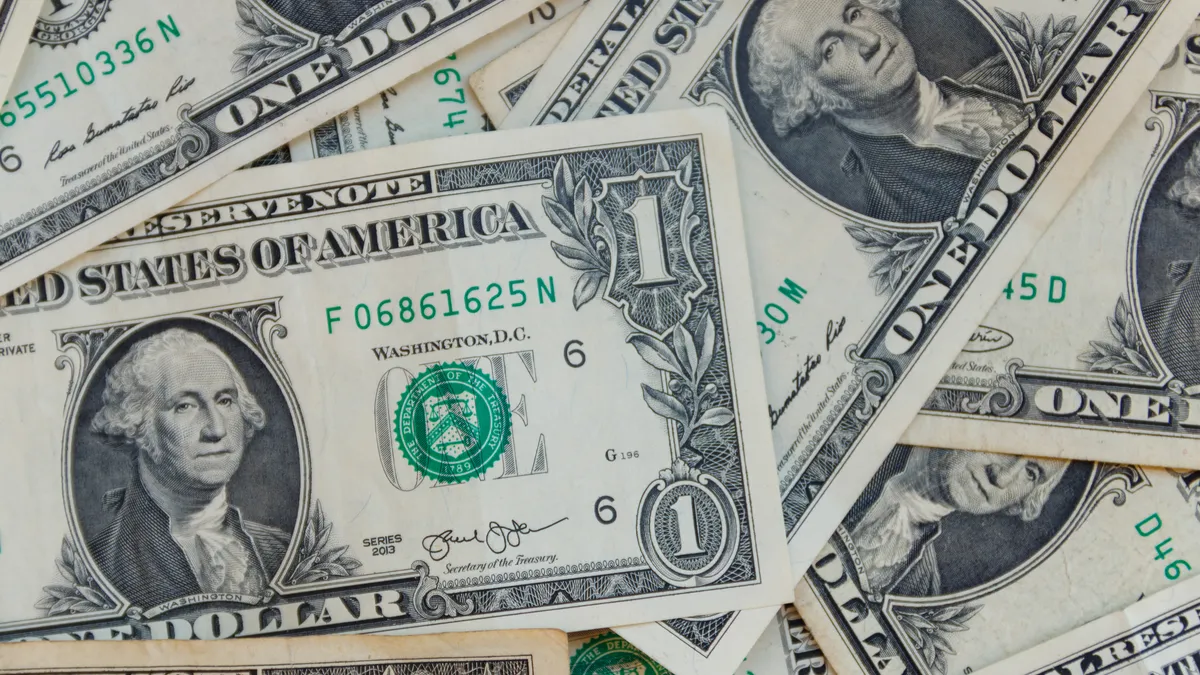As lenders prepare for a second wave of Paycheck Protection Program (PPP) funding, fintechs are better positioned now than they were when the first tranche was made available at the beginning of the month.
Nonbank lenders were only able to apply for the program six days before its funds were depleted, watching from the sidelines as the majority was accessed through banks.
Although some fintechs have since found SBA-approved banks to partner with for the loans, some are now armed with direct lender status, giving them a chance to flex their "speed and agility," John Pitts, policy head for Plaid, told Banking Dive.
The data aggregator has found its own way to lend a hand in the small-business relief effort, devising a product that would allow small businesses to share payroll data with their bank in an effort to shorten the PPP application process.
"Hours matter. So much money is moving so quickly that the difference between a fintech lender being able to apply for the program on Wednesday versus a bank being able to apply for the program the previous Friday, meant that the majority of money was gone before any fintech lenders were able to participate," Pitts said.
"If there are other applications to approve or other program criteria to set up, it's absolutely essential that they be done as quickly as possible because even one or two hours can result in businesses missing out on hundreds of millions if not billions of dollars of loans that they can get to their customers," he said.
Many banks and fintechs are continuing to take applications while they wait on Congress to pass a new infusion of PPP funds.
"Square Capital is still accepting applications, so our sellers can be ready once Congress has appropriated additional funds for PPP," a Square spokesperson told Banking Dive.
Because applications are being held in anticipation of new funds becoming available, a second round of funding could be exhausted in just a few days.
"This is going to go within, at most, 72 hours," Consumer Bankers Association President Richard Hunt told Politico. "But the odds are more like 48 hours."
Developments in Congress
The Senate approved a $484 billion package of coronavirus relief funds Tuesday and sent it to the House for likely approval Thursday.
The package includes $320 billion for the PPP. Of that, $30 billion is being set aside for banks and credit unions that have $10 billion to $50 billion in assets, and another $30 billion has been designated for even smaller institutions.
The measure also includes $60 billion in loans and grants for the Economic Injury Disaster Loan program, $75 billion for hospitals and $25 billion for virus testing.
Still at a disadvantage
While fintechs will be able to participate from the start this time, they still face a disadvantage compared with traditional banks, Pitts said.
The Federal Reserve announced a new credit facility this month to supply credit to banks that make PPP loans through the SBA's platform.
Some banks participating in the PPP hit their capital levels and needed to move the loans off their balance sheet and recapitalize. Under the Fed’s program, the central bank will take the PPP loans as collateral at face value.
The credit facility, however, is only available for depository institutions. The Fed said it is working to expand the program to other lenders.
Pitts said if the Fed fails to get nonbank lenders approved for the credit facility ahead of the second round of PPP funding, fintechs may once again fall behind traditional lenders.
"[Fintechs] may run out of capital and not have access to this system," Pitts said. "You really need to have things like that taken care of before the new funds are available so that fintechs can make loans on a level playing field with banks, since they're both fully approved lenders in the program."
Fintech lenders often tout their connections to the smallest businesses, and their ability to offer small loans that may not make sense for most traditional banks.
"[Fintechs] are ready to get these loans out there. They're talking about loans that are under $50,000, so the smallest operators who haven't had access to any of this," Pitts said. "The type of fintech that's out there that thinks they can originate 1 million loans in two days to really small mom-and-pops should have every bit of support as any bank to make sure they can fully participate."
OnDeck estimated 93% of U.S. small businesses did not have the chance to be funded through the PPP, according to American Banker.
However, almost 20% of the PPP money was processed by lenders with less than $1 billion in assets, and about 60% from banks with $10 billion or less in assets, Bloomberg reported.
Meanwhile, chain restaurants such as Shake Shack and Ruth’s Chris Steak House have come under fire for applying for coronavirus relief loans.
More than a dozen companies with revenue topping $100 million received PPP funds, a Bloomberg review found. Shake Shack said Sunday it would return its $10 million loan.






















